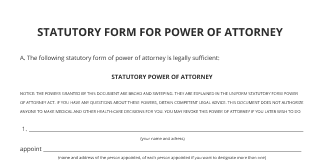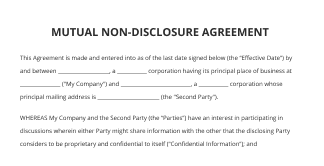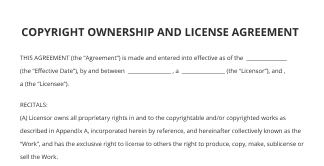Understand Invoice Due Date Terms with airSlate SignNow
Move your business forward with the airSlate SignNow eSignature solution
Add your legally binding signature
Integrate via API
Send conditional documents
Share documents via an invite link
Save time with reusable templates
Improve team collaboration
See airSlate SignNow eSignatures in action
Understanding Invoice Due Date Terms
Invoice due date terms define the timeframe within which payment is expected after an invoice is issued. These terms are crucial for managing cash flow and ensuring timely payments. Common terms include "Net 30," meaning payment is due within thirty days of the invoice date, and "Due on Receipt," indicating that payment is expected immediately upon receiving the invoice. Understanding these terms helps businesses set clear expectations with clients and maintain healthy financial practices.
Common Invoice Due Date Terms Explained
Different invoice due date terms can significantly impact your business's cash flow. Here are a few common terms:
- Net 30: Payment is due within thirty days from the invoice date.
- Net 15: Payment is due within fifteen days from the invoice date.
- Due on Receipt: Payment is expected immediately when the invoice is received.
- End of Month (EOM): Payment is due at the end of the month in which the invoice is issued.
Understanding these terms enables businesses to choose the most suitable option for their operations and client relationships.
How to Set Invoice Due Date Terms
When creating invoices, it is essential to clearly state the due date terms. Here are steps to effectively set these terms:
- Determine your business's cash flow needs and how quickly you need payments.
- Choose terms that align with industry standards and client expectations.
- Clearly state the terms on the invoice in a prominent location.
- Consider offering discounts for early payments to encourage timely transactions.
By following these steps, you can establish clear and effective invoice due date terms that benefit both your business and your clients.
Impact of Invoice Due Date Terms on Cash Flow
The choice of invoice due date terms directly affects cash flow management. Shorter terms, like Net 15, can enhance cash flow by encouraging quicker payments, while longer terms may lead to delays in receiving funds. Businesses should evaluate their financial needs and client relationships to find a balance that supports both parties. Regularly reviewing and adjusting these terms can also help adapt to changing business circumstances.
Communicating Invoice Due Date Terms to Clients
Effective communication of invoice due date terms is vital for maintaining positive client relationships. Here are some tips:
- Include the terms in your initial agreement or contract.
- Highlight the due date on the invoice itself.
- Send reminders as the due date approaches to ensure clients are aware.
- Be open to discussing terms if clients have concerns or need adjustments.
Clear communication fosters understanding and can lead to more timely payments.
Adjusting Invoice Due Date Terms for Different Clients
Different clients may have varying payment capabilities. It can be beneficial to adjust invoice due date terms based on the client's history and relationship with your business. For instance, long-standing clients with a good payment record might be offered extended terms, while new clients may start with shorter terms. This flexibility can enhance client satisfaction and encourage loyalty.
Using Digital Tools for Invoice Management
Utilizing digital tools can streamline the process of managing invoice due date terms. With platforms like airSlate SignNow, businesses can easily create, send, and track invoices. Features such as automated reminders and customizable templates help ensure that due date terms are consistently communicated and adhered to. This efficiency not only saves time but also reduces the risk of errors and missed payments.
airSlate SignNow solutions for better efficiency
Our user reviews speak for themselves






Why choose airSlate SignNow
-
Free 7-day trial. Choose the plan you need and try it risk-free.
-
Honest pricing for full-featured plans. airSlate SignNow offers subscription plans with no overages or hidden fees at renewal.
-
Enterprise-grade security. airSlate SignNow helps you comply with global security standards.

Grasping the terms related to invoice due dates
Administering terms associated with invoice due dates is essential for sustaining a robust cash flow in your enterprise. With airSlate SignNow, you can enhance the signing workflow, guaranteeing that documents are executed swiftly and effectively. This manual will guide you through the procedures to make the most of airSlate SignNow.
Instructions for handling invoice due date terms with airSlate SignNow
- Launch your internet browser and go to the airSlate SignNow website.
- Set up a complimentary trial account or log in if you already possess one.
- Choose the document you intend to sign or distribute for signatures and upload it.
- If you intend to reuse this document, save it as a template for future applications.
- Access your uploaded document and perform necessary modifications, like adding fillable fields or inserting specific details.
- Add your signature to the document and assign signature fields for the recipients.
- Press 'Continue' to configure and send an eSignature request.
By utilizing airSlate SignNow, businesses can experience a notable return on investment thanks to its all-encompassing features designed for small to medium-sized enterprises. The platform is intuitive and scalable, ensuring you can modify it according to your expanding requirements.
With clear pricing and no concealed charges, airSlate SignNow also provides exceptional 24/7 assistance for all paid subscriptions. Begin enhancing your document signing workflow today!
How it works
airSlate SignNow features that users love
Get legally-binding signatures now!
FAQs
-
How do I mention payment terms in an invoice?
Under “30 days payment terms,” the buyer must pay the seller within 30 days after the invoice date. Depending on the agreement, these terms might also be phrased as “net 30” or include variations such as “30 days from receipt of goods” and “30 days after the end of the month.” -
How long should a due date be on an invoice?
While it's possible to agree on a later payment date, a customer should pay you within 30 days. If you have a good business relationship or if there are unique conditions to the sale, it's possible to negotiate longer payment periods. -
What is the average due date for an invoice?
The average due date is the date at which an invoice needs to be paid before any loss of interest is incurred. This average date is used to simplify the payments process and to ensure that all parties are happy with the transaction with no lost interest. -
What if an invoice is not issued within 30 days?
If an invoice is issued after the prescribed time under Rule 47, the supplier may face penalties under Section 122 of the CGST Act, interest at 18% p.a. on delayed tax payment, and the recipient may lose eligibility to claim Input Tax Credit (ITC). -
How long should an invoice due date be?
Unsurprisingly, the main reason to state a set due date on an invoice is to encourage your customers to pay you within a certain period of time. While it's possible to agree on a later payment date, a customer should pay you within 30 days. -
Are 30 day payment terms standard?
While 30-day payment terms are common, there are plenty of alternatives that might suit your business or customer needs. Choosing the right terms depends on factors such as the reliability of your customers and the nature of your industry. Here are some other standard options.
What active users are saying — invoice due date terms
Find out other invoice due date terms
- Empowering your workflows with AI for bank loan ...
- Empowering your workflows with AI for car lease ...
- Empowering your workflows with AI for child custody ...
- Empowering your workflows with AI for engineering ...
- Empowering your workflows with AI for equipment sales ...
- Empowering your workflows with AI for grant proposal ...
- Empowering your workflows with AI for lease termination ...
- Empowering your workflows with AI for postnuptial ...
- Empowering your workflows with AI for retainer ...
- Empowering your workflows with AI for sales invoice ...
- Empowering your workflows with AI tools for signing a ...
- Start Your eSignature Journey: sign pdf documents
- Start Your eSignature Journey: online pdf signer
- Start Your eSignature Journey: sign doc online
- Start Your eSignature Journey: sign documents online
- Start Your eSignature Journey: sign the pdf online
- Start Your eSignature Journey: signing on pdf online
- Start Your eSignature Journey: sign any document online
- Start Your eSignature Journey: signed documents
- Start Your eSignature Journey: sign pdf document free






























